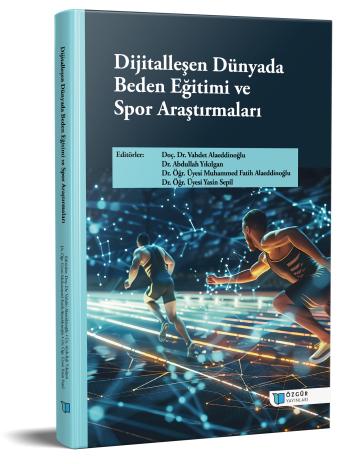
Research Trends in Sports Informatics and Technology
Chapter from the book:
Alaeddinoğlu,
V.
&
Alaeddinoğlu,
M.
F.
&
Yıkılgan,
A.
&
Sepil,
Y.
(eds.)
2025.
Research on Physical Education and Sports in the Digitalizing World.
Synopsis
The integration of sports sciences and technology has become a significant focus in academic research in recent years. This field encompasses the use of computing and technological tools to enhance athletic performance, improve athlete well-being, and optimize training processes. Research trends have gained momentum with the widespread adoption of wearable technologies and sensor-based systems. These technologies enable the real-time collection of physiological data (heart rate, speed, distance, acceleration, etc.) from athletes during training and competition. The resulting large datasets are analyzed using artificial intelligence and machine learning algorithms, leading to breakthroughs in performance analysis, injury prevention, and the development of personalized training programs.
Another prominent trend is the integration of virtual and augmented reality (VR/AR) technologies into sports education and the fan experience. VR/AR offers athletes simulated training environments, providing opportunities for skill development and strategy implementation, while offering fans a more interactive and immersive viewing experience. Furthermore, data analytics and predictive modeling assist coaches and sports managers in making more informed decisions, thereby adopting scientific approaches in areas such as team strategies and player selection. Biomechanical analyses and motion tracking systems also play a critical role in optimizing performance and reducing injury risk through detailed examination of athlete movements. Future research will focus on further personalization of these technologies, as well as addressing data privacy and ethical considerations.

